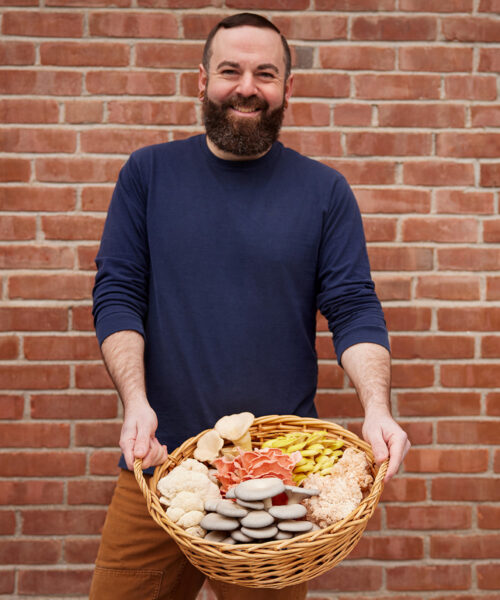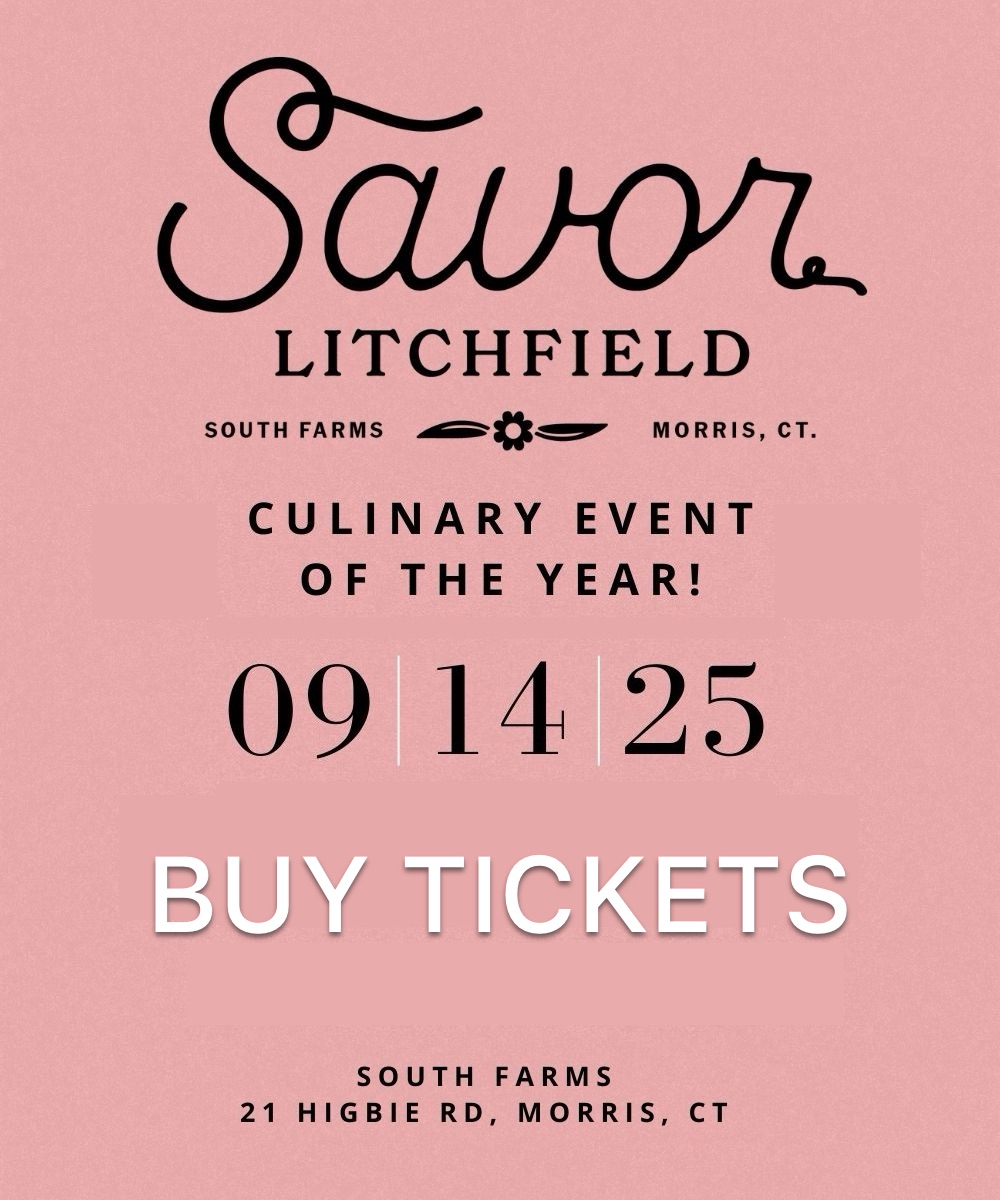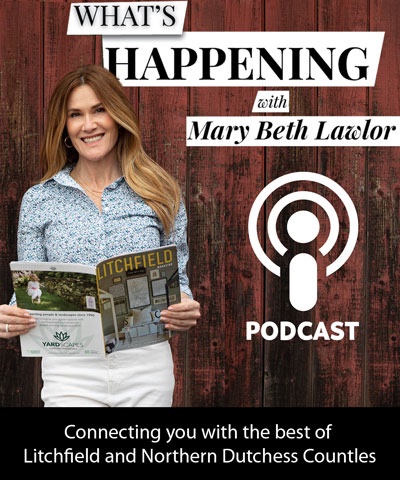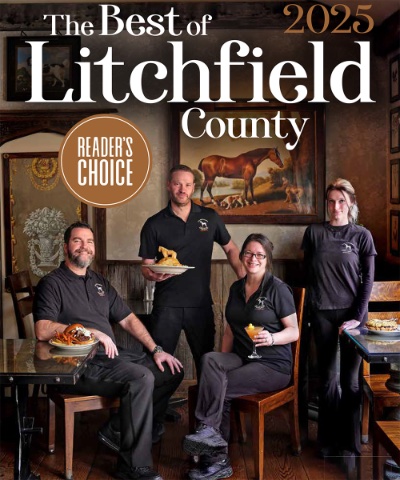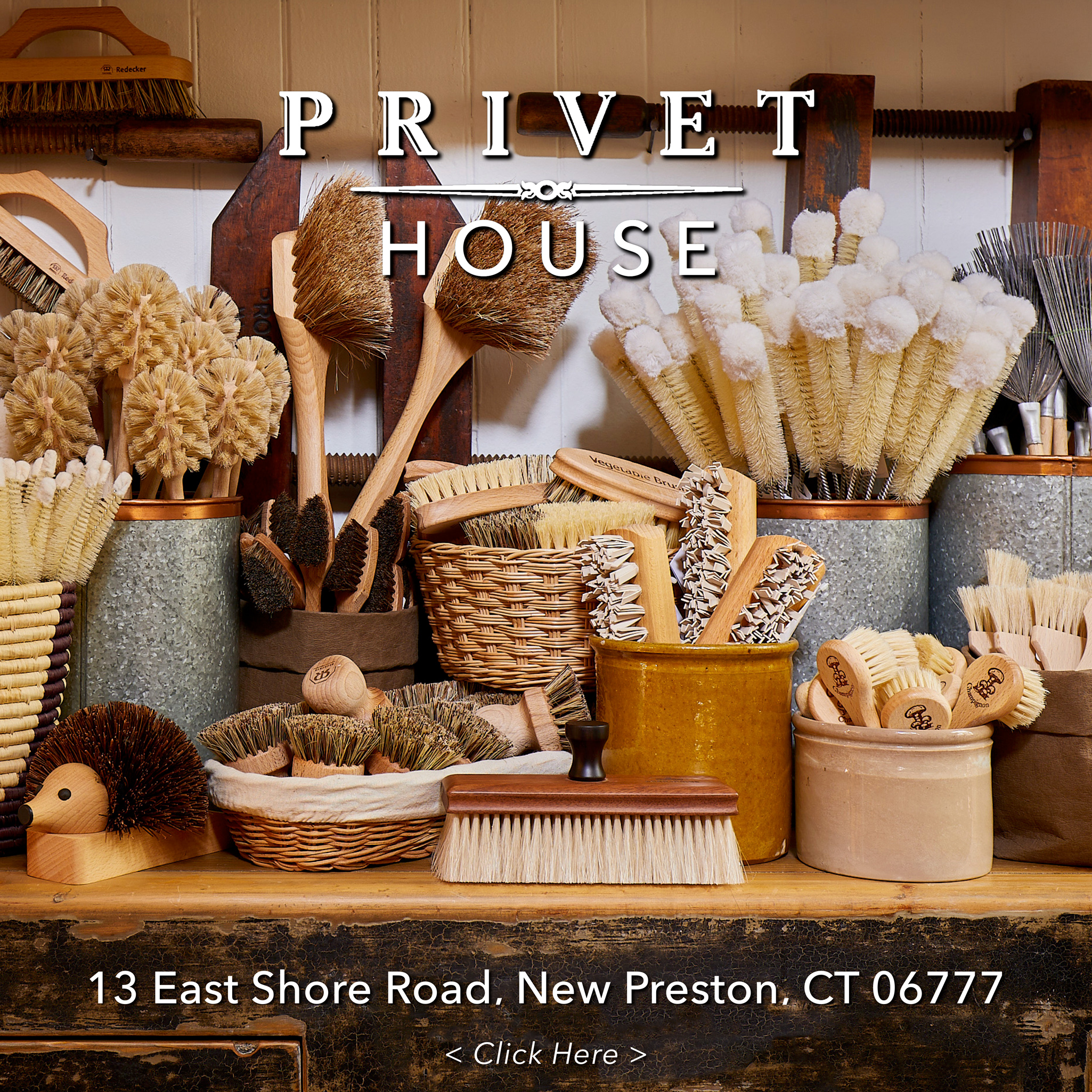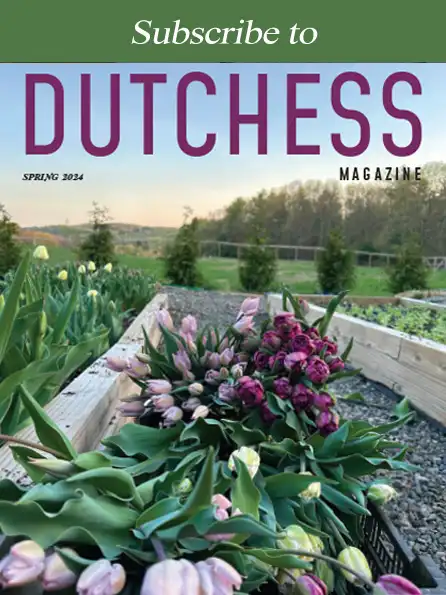February 26, 2024
A Chance Encounter Turns Serious
By Michelle Madden
Photos by Ryan Lavine
When people say they stumbled into their career, they don’t usually mean literally. Spencer Lord literally did. Five years ago he was walking on his parents’ 27-acre property in New Milford when he came across a ‘reishi’ mushroom—burnt orange and fan-shaped, like nothing he had ever seen before. The encounter led to foraging, which evolved into mushroom growing kits, and eventually spawned a thriving business. Oracle Mushrooms will soon be supplying 100 pounds per week of varieties such as Lion’s Mane, King Trumpet, and Pink Oyster.
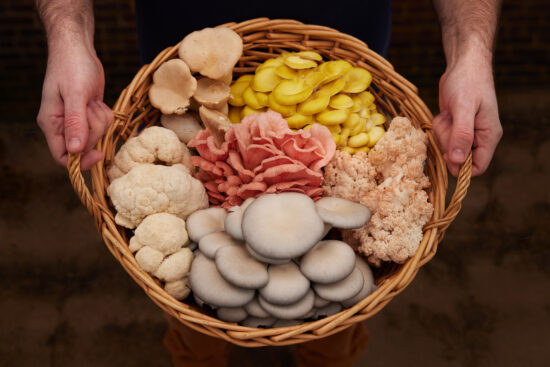
Lord is a chemist. His lab is filled with glass beakers waiting on shelves, test tubes huddled in holders, and petri dishes carrying nutrient-gel to feed the mushroom culture. Growing mushrooms is complicated. Gourmet mushrooms grow on trees, which Lord creates by combining wood chips and soybean hulls into a block. The mushroom culture (mycelium) is then injected into a grain mixture and added to the block. The block then sits patiently in a warm bag from ten days to three months to colonize. Once colonized, the mushrooms are shuttled to the “fruiting tent”, for another four weeks.
And this is when things get exciting…
Peering through the plastic window into the zipped, climate-controlled, ”fruiting tent” with vapor piping in, and lights “imitating sunlight peeking through the canopy of the forest”, is like looking through a scuba mask on the Great Barrier Reef and seeing exquisite coral––pink, orange, tan––delicate gills in neat rows, trunks bold and supportive. They are living sculptures and utterly exotic.
Mushrooms are either: edible, medicinal, or psychedelic. Lord grows ‘edibles’ but they too are highly “medicinal,” with nutritional benefits ranging from anti-inflammatory to digestive wellness to the prevention of neurodegenerative disease. Many vegans get vitamin D from mushrooms which convert ergosterol to vitamin D when exposed to sunlight.
Some people don’t like mushrooms or go so far as to be afraid—micophobia. Lord’s response? “Try sautéing them in butter and garlic, you’ll get over it fast.” Lord cautions that while mushrooms can be eaten raw, it is not optimal as humans do not possess the enzyme chitinase to break down the cell walls, which can cause digestive issues. Cooking breaks down the walls and allows for their nutrients to be more available.
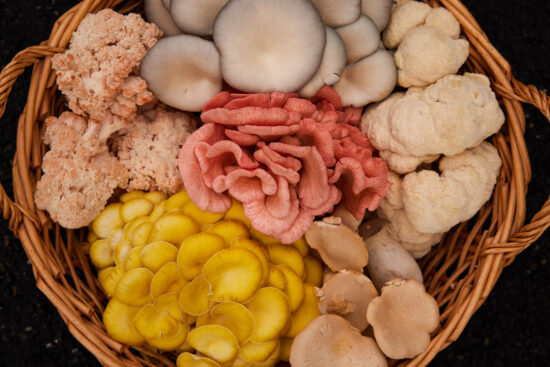
As for storage? “Forget the brown bag,” Lord advises, “it dries them out. Put them in an airtight container, with paper-towel lining the bottom and top to absorb moisture.”
The reverence Lord has for his mushrooms is undeniable. He notes “a level of consciousness” they have and speaks of the communication (via electrical signals) that occurs between mushrooms that may be many feet apart. He underscores how critical they are to our environment, breaking down old trees while providing nutrients to living trees.
As he cradles his eight-week-old son, I can’t help but sense that every mushroom he produces, he feels this same sense of wonder, and gives to each one, the same love that he bestows on his first child. @oraclemushrooms





